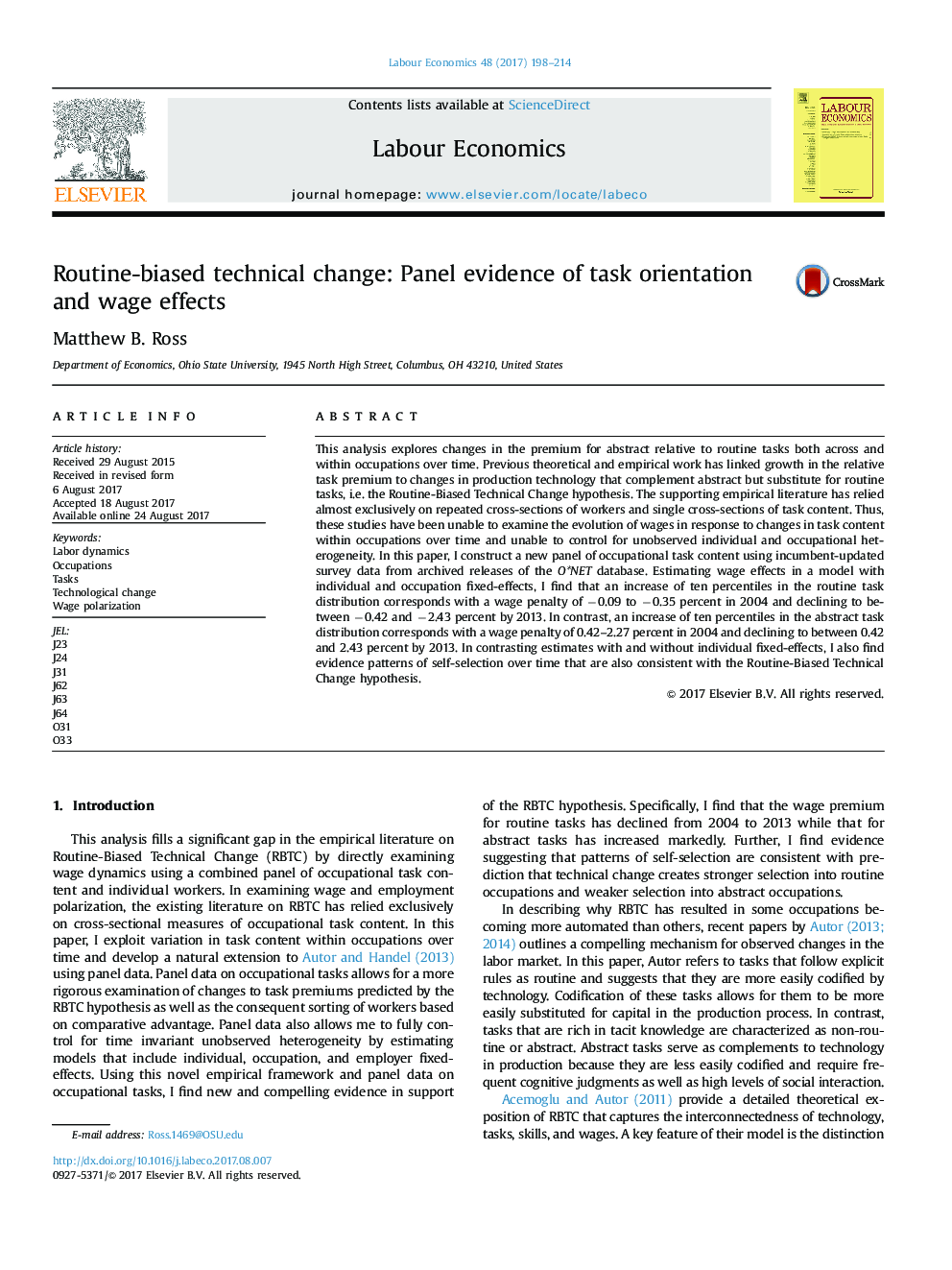| Article ID | Journal | Published Year | Pages | File Type |
|---|---|---|---|---|
| 5102049 | Labour Economics | 2017 | 17 Pages |
Abstract
This analysis explores changes in the premium for abstract relative to routine tasks both across and within occupations over time. Previous theoretical and empirical work has linked growth in the relative task premium to changes in production technology that complement abstract but substitute for routine tasks, i.e. the Routine-Biased Technical Change hypothesis. The supporting empirical literature has relied almost exclusively on repeated cross-sections of workers and single cross-sections of task content. Thus, these studies have been unable to examine the evolution of wages in response to changes in task content within occupations over time and unable to control for unobserved individual and occupational heterogeneity. In this paper, I construct a new panel of occupational task content using incumbent-updated survey data from archived releases of the O*NET database. Estimating wage effects in a model with individual and occupation fixed-effects, I find that an increase of ten percentiles in the routine task distribution corresponds with a wage penalty of â0.09 to â0.35 percent in 2004 and declining to between â0.42 and â2.43 percent by 2013. In contrast, an increase of ten percentiles in the abstract task distribution corresponds with a wage penalty of 0.42-2.27 percent in 2004 and declining to between 0.42 and 2.43 percent by 2013. In contrasting estimates with and without individual fixed-effects, I also find evidence patterns of self-selection over time that are also consistent with the Routine-Biased Technical Change hypothesis.
Related Topics
Social Sciences and Humanities
Economics, Econometrics and Finance
Economics and Econometrics
Authors
Matthew B. Ross,
